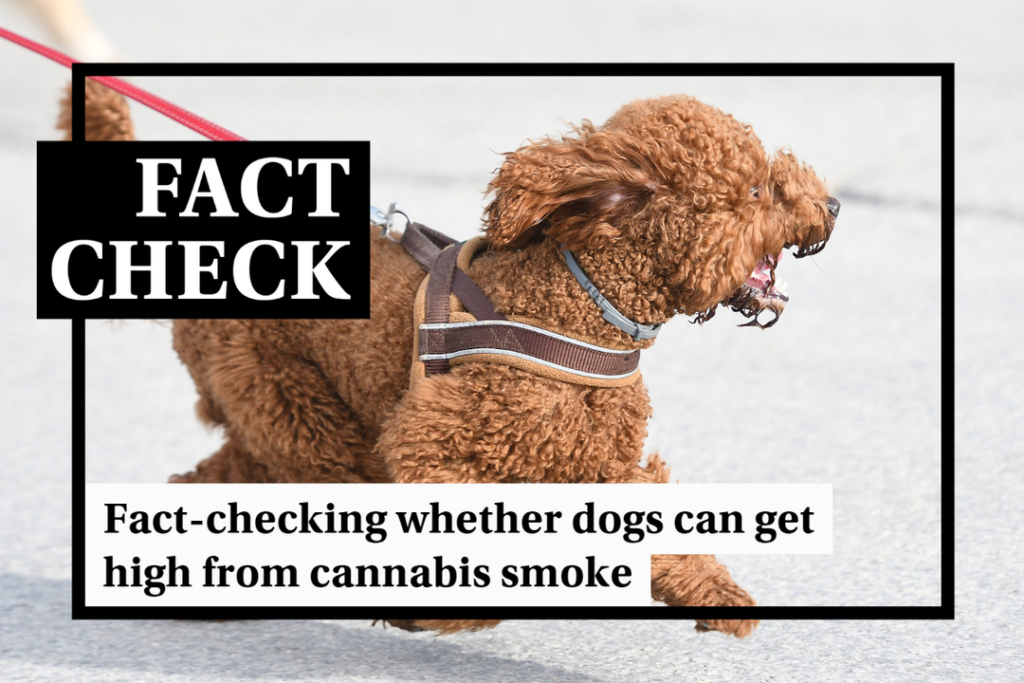Speaking in parliament on Monday 22nd May, Nationalist Party MP Claudette Buttigieg described a recent incident in which a visually impaired man’s guide dog got high from inhaling second-hand smoke in a restaurant.
According to Buttigieg, the dog fell ill after inhaling cannabis smoke from the smoking area of a restaurant and was unable to guide the man home.
Buttigieg mentioned the incident while raising the broader point that cannabis laws put in place in 2021 have led to people smoking cannabis in public without adequate enforcement of the law.
Times of Malta has received requests from readers to fact-check whether it is really possible for dogs to get high from inhaling cannabis smoke in outdoor spaces.
Is cannabis harmful to dogs?
Yes, research indicates that cannabis is harmful to many household pets, including dogs and cats.
Studies suggest that dogs have more cannabinoid receptors than humans, making them potentially more susceptible to being affected by cannabis. However, researchers admit that data on the matter remains incomplete, as “there is much less information on the effects of cannabinoids” on animals compared to humans.
Nonetheless, toxicology reports indicate that animals who consume marijuana may suffer from symptoms such as vomiting, incontinence and poor balance.
Is second-hand cannabis smoke a problem?
Vets who spoke to Times of Malta explained that while it is possible for dogs to get high or sick from second-hand cannabis smoke inhalation, this would require prolonged exposure to smoke in a confined space, which is unlikely to happen in an outdoor or open space.
This is echoed by several public statements by international vets, who argue that “unless an animal is confined in a room with extreme amounts of smoke, a dog inhaling secondhand marijuana smoke is not likely to lead to intoxication”.
Vets also explained that some of the ill effects of dogs inhaling smoke include damage to their lungs and respiratory systems, however, this is common to all forms of smoke inhalation, including that of traditional cigarettes.
Ingesting cannabis
However, a potentially more dangerous and commonplace danger to dogs is the possibility of them ingesting cannabis.
Research suggests that “although secondhand smoke inhalation is possible, the most common source of exposure is through ingestion of the owner’s marijuana supply”.
Aside from being more commonplace, dogs who eat cannabis are likely to suffer more severe symptoms than if they consume it through second-hand smoke.
As one international vet writes, “animals may exhibit mild to moderate signs after inhalational exposure (e.g., smoke), but are more likely to become symptomatic after ingestion (which is the more common route of accidental animal exposure)”.
Does the legalisation of cannabis put dogs at risk of intoxication?
There is relatively little research into this field, and the research that does exist is not conclusive.
One study found that there was no significant change in the number of dogs reported to have suffered cannabis intoxication one year after the drug was legalised in Canada compared to three years before legalisation, despite the number of cannabis users in the country reportedly growing by some 600,000.
On the other hand, the study also found that there was a slight increase in US states that had legalised the drug.
Likewise, an older study found that there tend to be higher reports of dogs suffering from cannabis intoxication in US states where there are lower penalties for cannabis use and possession.
Is cannabis intoxication in animals on the rise in Malta?
There is no comprehensive local data about the issue, with the impact of the legalisation of cannabis yet to be properly studied.
However, Animal Welfare Commissioner Alison Bezzina told Times of Malta that she is not aware of any local incidents of cannabis intoxication in dogs and has not seen a change since cannabis was legalised in 2021.
Times of Malta spoke to the person referred to by Buttigieg, who described how their guide dog became lethargic, failing to respond to instructions, after being exposed to cannabis smoke in the outdoor smoking area of a restaurant. The dog’s symptoms lasted for some 45 minutes.
Asked whether it’s possible that the symptoms were caused by something the dog may have eaten, the person explained that this is possible, expressing concern over the possibility of dogs ingesting cannabis through discarded stubs left in public spaces.
Verdict
While cannabis is harmful to animals, research shows that dogs are more likely to suffer ill effects after eating cannabis, rather than inhaling second-hand smoke, as this would require extended exposure to the smoke in a contained space.
Nonetheless, international studies have shown that there may be a link between lower penalties for cannabis use (or its legalisation) and an increase in reports of cannabis intoxication in animals.
The Times of Malta fact-checking service forms part of the Mediterranean Digital Media Observatory (MedDMO) and the European Digital Media Observatory (EDMO), an independent observatory with hubs across all 27 EU member states that is funded by the EU’s Digital Europe programme. Fact-checks are based on our code of principles.
Let us know what you would like us to fact-check, understand our ratings system or see our answers to Frequently Asked Questions about the service.





